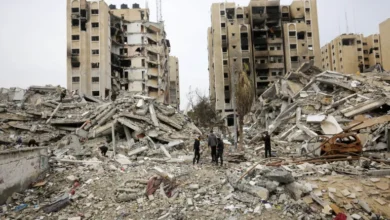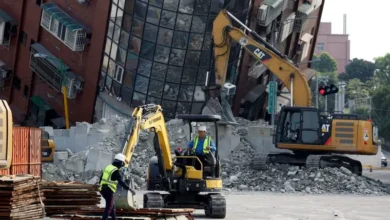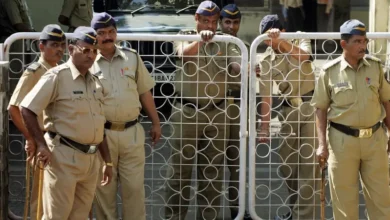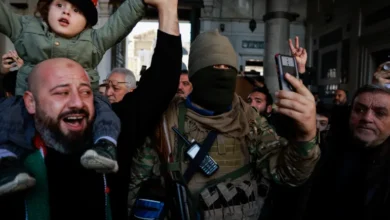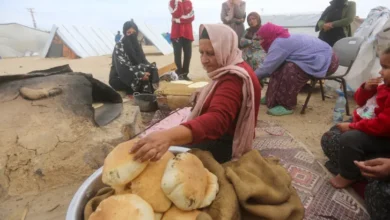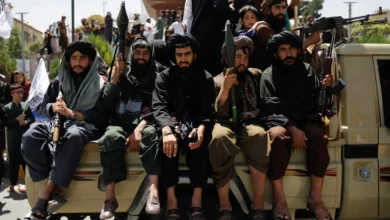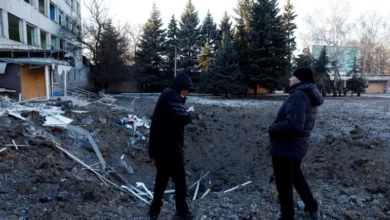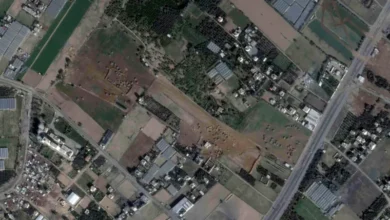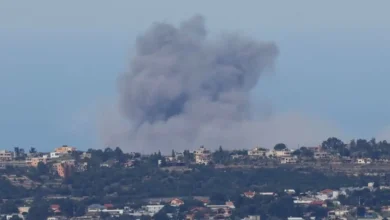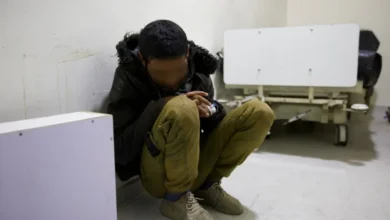‘We saw death’: Egyptian nationals trying to leave Gaza stuck at Rafah
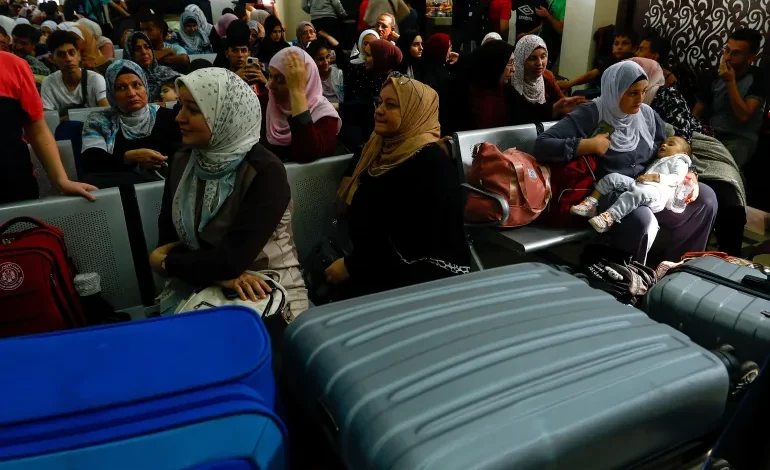
It was a long-awaited family reunion. In October, Reem Rasmi travelled from her home in Egypt to the Gaza Strip to visit her sister’s family after five years. Her nephew was getting married, and it was time to celebrate.
A month later, the 55-year-old is stuck in the besieged enclave, displaced by the war that broke out on October 7 and that has prevented her from being able to return to her husband and children back in Egypt. For Rasmi, an Egyptian national, the dilemma is doubled: Even if she does manage to cross over at the Rafah border, she will need to leave her sister’s family behind, amid unrelenting bombing from Israel.
“I was supposed to leave on October 10, and I’m still waiting,” she said. “I have never experienced war like this before, with explosions everywhere. I can’t even describe the level of terror we’re in.”
Rasmi and her sister’s family were forced to flee from the sister’s home in the al-Zaytoun neighbourhood east of Gaza City to another relative’s house in the southern city of Khan Younis because of the bombardment. She said her husband and children are constantly asking her about whether she has heard anything from Rafah border officials on when she can cross. She has no firm answer for them.
“My children are consumed by fear and anxiety, and I cannot reassure them and tell them I’m fine because they watch the news on TV,” she said. “The images show the horror and displacement of people in this war. Sometimes even I cannot comprehend what is happening.”
The Rafah crossing is the only exit point for Palestinians and foreign nationals. It has been repeatedly bombed by Israel and is completely shut to those who wish to enter Gaza from the Egyptian side.
Egypt has said that it would help secure the evacuation of about 7,000 foreigners and dual nationals from the Gaza Strip. On November 1, the border crossing for exiting was finally opened after several weeks, but only for the evacuation of foreigners and dual nationals, and the coordinated transfer of dozens of wounded Palestinians.
A daily list names those from Gaza who have been allowed to leave. The list is vetted by Israel. Hundreds of people who have flocked to the crossing over the past week have been stopped from exiting. Among them is Rasmi.
“I am living the most difficult days of my life under bombardment,” she said. “Luck is not on my side.”
‘We have the right to leave’
An estimated 50,000 dual nationals living in the Gaza Strip hold both Palestinian and Egyptian citizenship, according to Alaa al-Din Obeid, a member of the Egyptian community cultural centre in Gaza.
“There are 8,000 Egyptian women married to Palestinians, and these mothers can pass on their citizenship directly to their children but not to their husbands,” Obeid said, speaking from Rafah.
Palestinians with an Egyptian grandmother can also gain Egyptian citizenship through court orders, he added.
Obeid said that before the war, the Egyptian community cultural centre was in the process of gathering information for an updated census.
“This is why it’s hard to know exactly how many Egyptian Palestinian dual nationals managed to leave through Rafah,” he said, saying that the number is estimated at 300.
On the Palestinian side of the Rafah crossing, some Palestinian Egyptians are questioning whether Egyptian authorities are doing enough to help them leave.
Khalida Hassan said she and her four children have been waiting at the crossing since it opened more than a week ago.
“We saw death with our own eyes,” the 45-year-old said. “Every day we hand over our passports and our bags get taken and we wait to cross to the Egyptian side, but they keep closing the border and return our bags and documents.”
“We all hold foreign passports so there should not be a difference between having an Egyptian or US passport,” she added.
Hassan, who has lived in Gaza all her life, said her house was bombed and she was forced to flee south, where there is no water or electricity.
“When will I leave Gaza? Are they waiting for me and my children to die here? We all have the right to leave the crossing,” she said.
